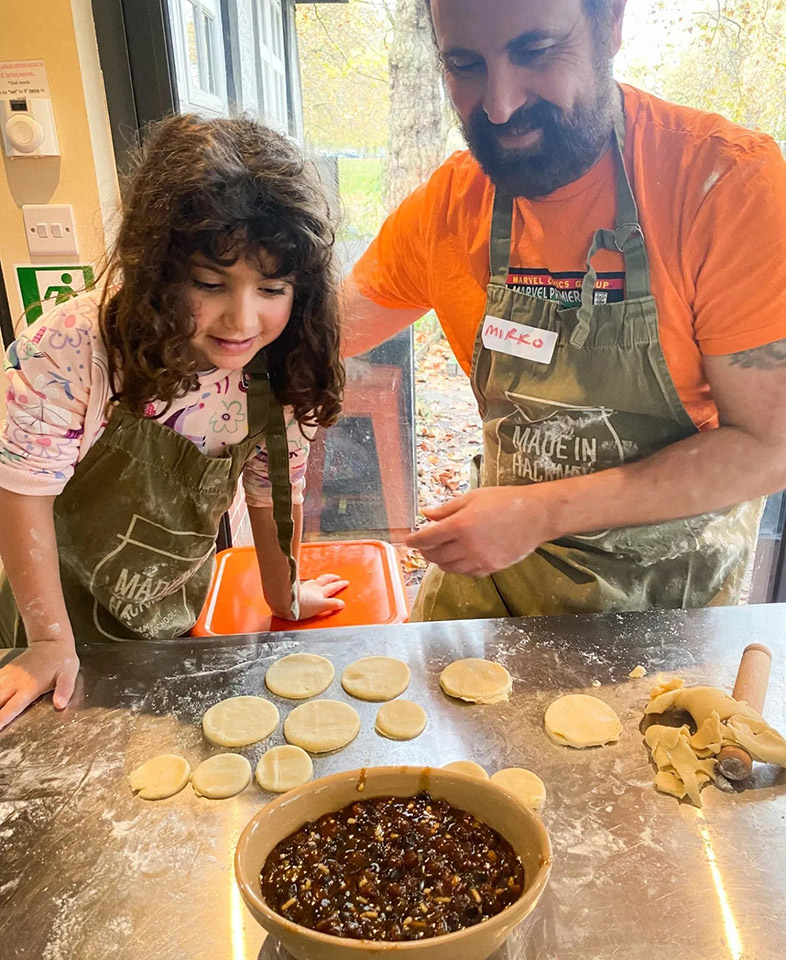10 steps to start a vegan community kitchen


You might be a passionate foodie, a skilled teacher or an environmental activist. Whatever motivates you – we are so glad you’re here! If you have a great idea but are unsure how to get started, we’ve got the 10 top steps to get you on your way.
Step 1. Define what you want to do and why
Being a vegan community kitchen is the starting point but why are you doing it? To appeal to everyone in your community you need to determine what benefits your programme will have for others. Are you trying to promote healthy eating or cooking on a budget? Can your work support social isolation and mental wellbeing? Use this to inform a simple strategy or theory of change.
Find out more in the Getting started module
Step 2. Engage with your community
Once you know what you want to do it’s important to find out that the people in your community want the same thing! This can range from the types of classes to when they are run and what price people can pay. This is also an important stage to build networks across local businesses, councils and public services which could lead to funding, finding a venue or potential participants.
Find out more in the Community engagement module
Step 3. Build a team
You might be able to get started on your own but to have an impact – and to look after your wellbeing – a successful project needs a team. After all, nobody is skilled at everything! Recruiting volunteers with a range of skills is a good place to start. This could grow into roles as you secure funding to pay people. Remember that you don’t need to share the exact same vision with someone to get them involved. Everyone can bring a different perspective or set of skills.
Find out more in the Creating and developing a team module
Step 4. Register as a charity or social enterprise
To get funding or even to open a bank account, you need to be a registered charity or social enterprise. This will vary depending on which country you are in, however, there is usually guidance available from charitable bodies or public organisations. Some formations, like being a community interest company in the UK, require more directors. Another reason why having a team is so important!
Find out more in the Organisational setup module
Step 5. Open a bank account
Many funding bodies ask for bank account details in funding applications so you should set up a bank account as soon as you have a registered organisation. Similar to registering your organisation, you might need multiple signatories so make sure you know what you need before you start.
Find out more in the Organisational setup module
Step 6. Create a website and social media
You should register the addresses or handles for your preferred communications channels as soon as you have a name. You can build your website slowly over time as you define what your programme is doing. Once you run a test class (see step 9!) you’ll have content to populate it with.
Find out more in the Communications and marketing module
Step 7. Have your food safety paperwork in place
It’s surprising how many people try to set up a food project without basic food safety protocols in place! Again, this will vary depending on where you are located with a minimum usually being a registered food business, having a food safety certificate and a food safety policy.
Find out more in the Organisational setup module
Step 8. Run a test class
Now it’s time to put your ideas into reality! A test class gives you time to road test your ideas, engage with the community and get some feedback and photos – all of which can be used in funding applications and in promotional materials.
Find out more in the Creating the programme module
Step 9. Evaluate and plan
By now you should have evidence from speaking to your community and running a test class. You will have refined your original goals and can set out what you plan to do longer term. How many classes? Who is the target audience? Where will you host them? From this you can go ahead to find a venue and apply for funding!
Find out more in the Creating the programme module
Step 10. Apply for funding
Now you have the basics in place, you’re ready to take the big leap! Even if you charge for classes you will unlikely be able to cover your running costs especially if you aspire to grow an impactful project. Our programme contains a lot of bespoke advice for Made In Hackney fundraising experts which can help you succeed in your funding applications.
Find out more in the Funding your activities module




